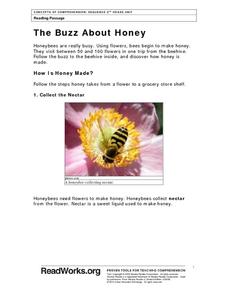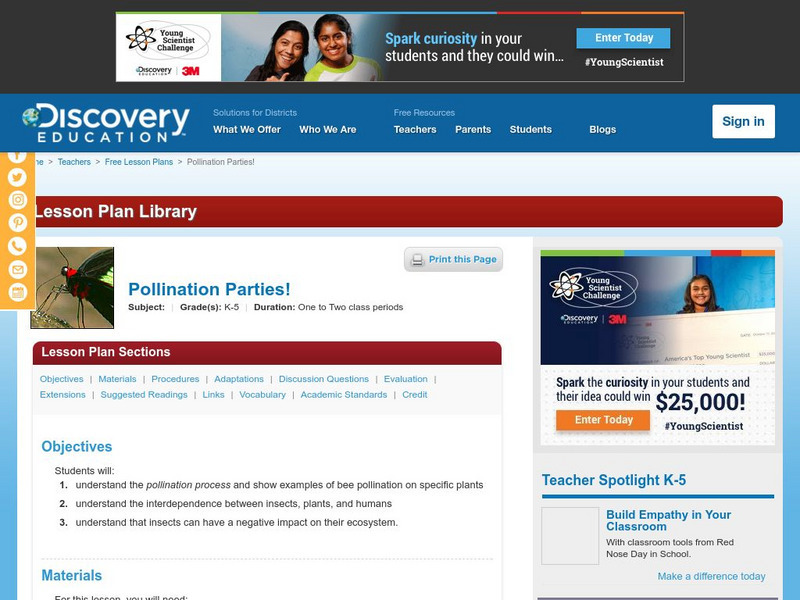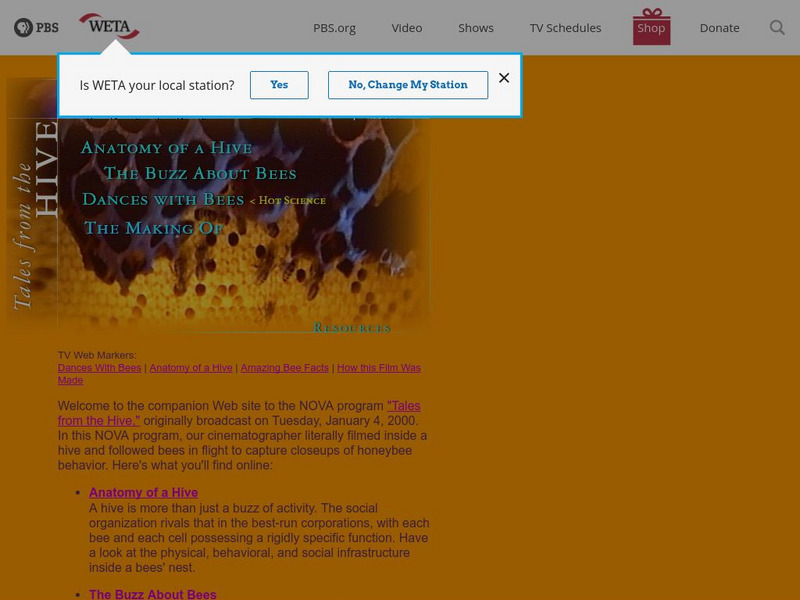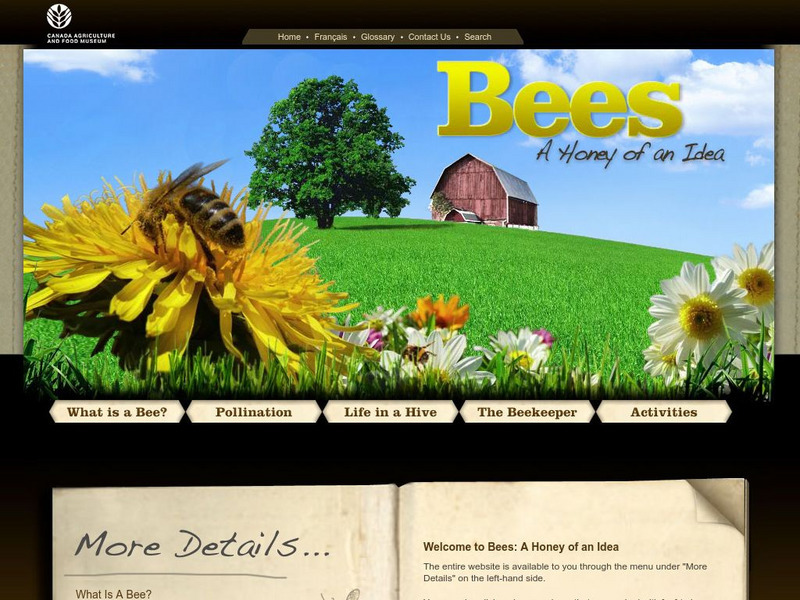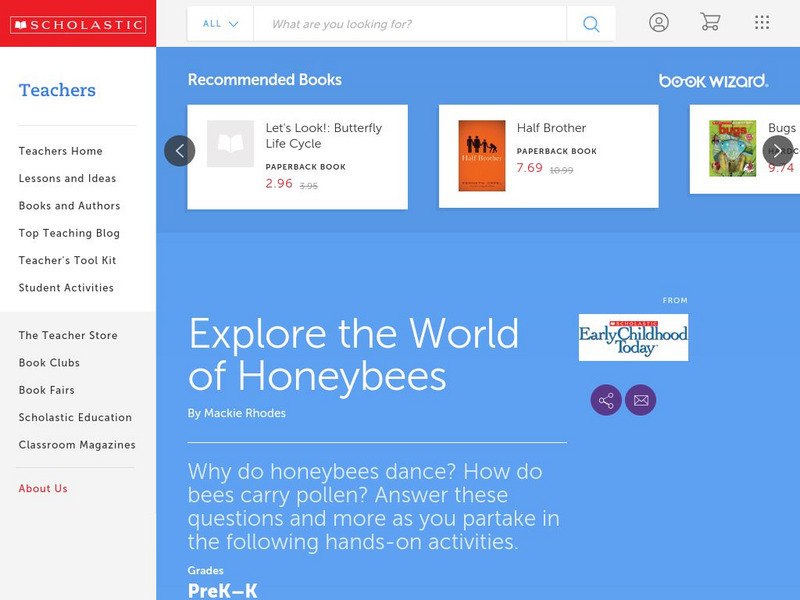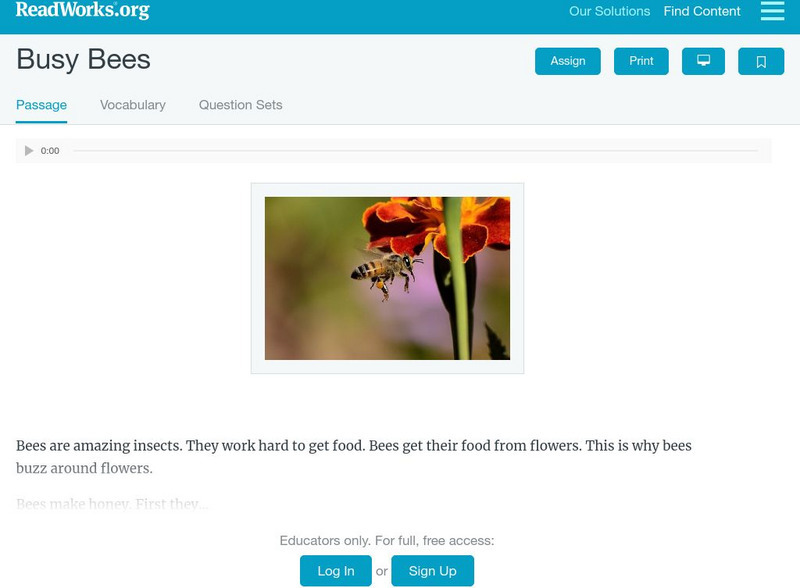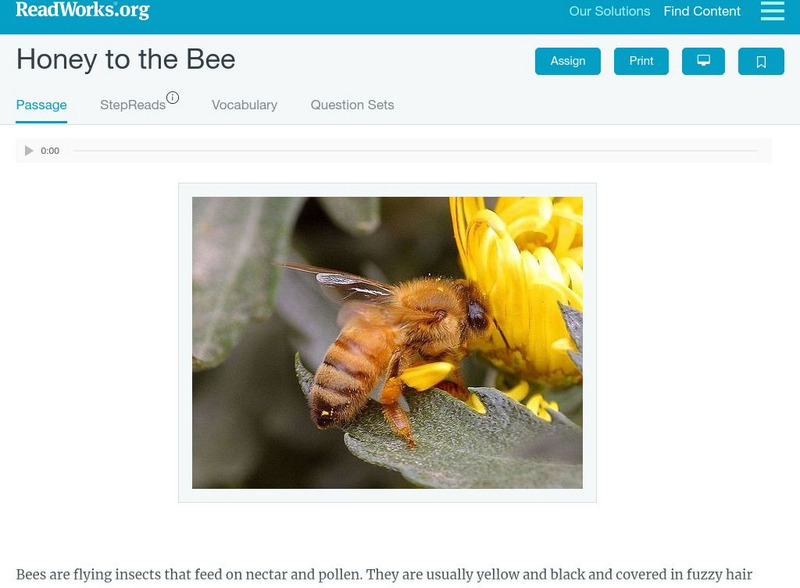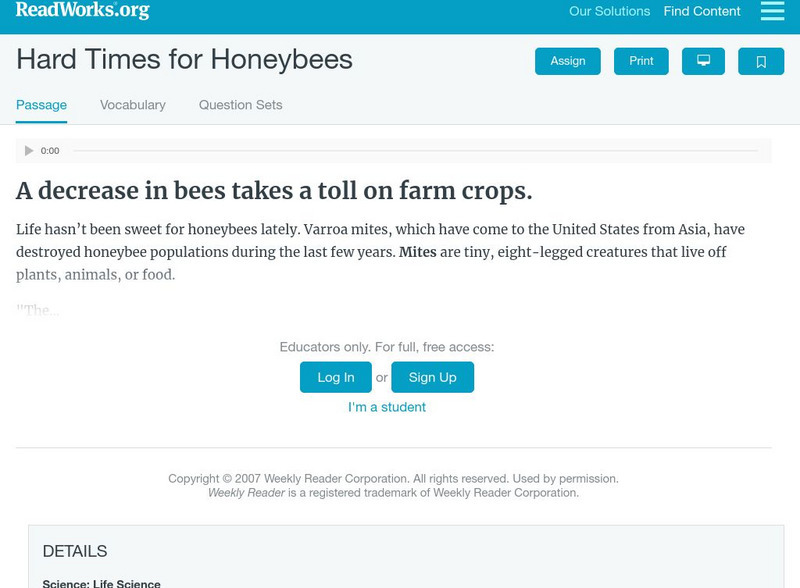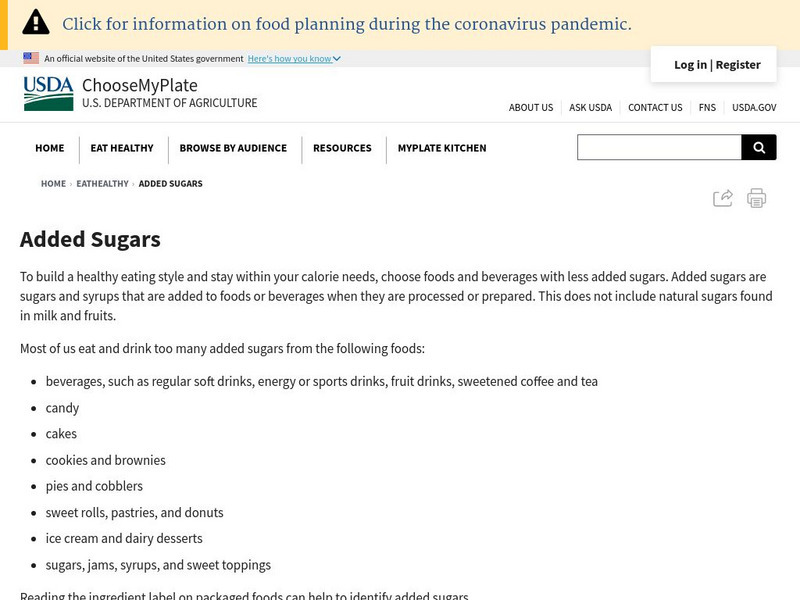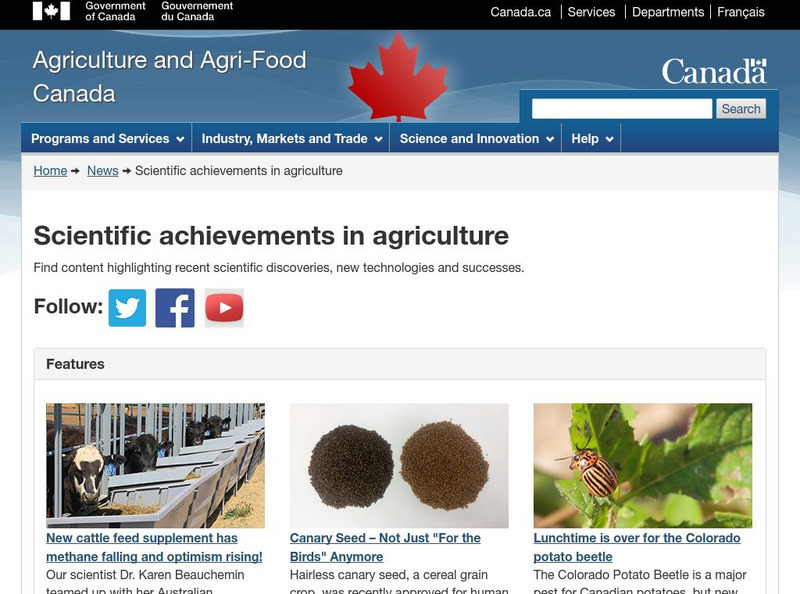Curated OER
Darwin’s Bees
What do you call a bee born in May? A maybe! This first instructional activity in a series of four begins with a starter activity to get scholars thinking about the topic. Then a circus, or circuit of seven activities,...
Curated OER
The Buzz About Honey
What's the buzz these days? Learn some fun and interesting facts about honeybees with an informational reading passage, including the steps for successful pollination and honey creation.
Curated OER
Give Me Some Sugar, Honey!
Students research the history of honey and different products that come from honey. In this bees and honey lesson, students review how honey is made, discuss ways people use honey, research the history of honey and its uses, create...
Curated OER
Buzzing Bee's Wardrobe
Students investigate the anatomy of honeybees. In this anatomy lesson, students research the physical characteristics of bees and discover what they do. Students create a model of a honeybee showing the correct anatomy.
Curated OER
Bee Dance
Everything a bee does serves a purpose. Learners in grades one through five explore the behaviors of bees through reading and dramatic puppet play. First children will create honey bee puppets, then they will discuss how bees dance to...
Alabama Learning Exchange
Honeybees
Pupils explore the various functions of bees within the hive and explain the process of making honey. They use numerous resources to find their information including the internet, library books and their science texts.
Curated OER
The Sweet Connection
Fifth graders use maps to find what crops are dominant in areas where honeybees are raised and discuss possible correlations.
Curated OER
What Bees Eat
Students consider the concept that plants and animals are dependent on one another and role-play the interaction between bees and flowers. They identify crops that are dependent on pollination by bees.
TED Talks
Ted: Ted Ed: The Human and the Honeybee
Both honeybees and humans originated in East Africa, and the connection between us has survived the ages. Dino Martins encourages us to remember how much we owe to these magnificent insects. [6:25]
Discovery Education
Discovery Education: Pollination Parties
This activity helps students understand the concept of pollination. Objectives, materials, procedures, adaptations, discussion questions, evaluation, extensions, suggested readings, links, vocabulary, and academic standards are all...
PBS
Pbs Nova: Tales From the Hive
Website that accompanies the NOVA program "Tales from the Hive." Site includes additional facts on bees, specifically the breakdown of a bee hive, and the different dances bees do as well as what they mean.
Nature Conservancy
The Nature Conservancy: Discover the Culprit Behind Declining Bee Populations
Bees provide vital benefits to people, including crop pollination and products such as honey and beeswax. But we're losing bees through colony collapse disorder. In this lesson, students are put at the cutting edge of research on...
Other
Canada Agriculture Museum: Bees: A Honey of an Idea
Learn about bees, from different types, pollination to the processes utilized to extract, package, and use honey and its by-products. Includes quick facts, recipes, craft ideas, and printable activities for students.
Scholastic
Scholastic Instructor: Explore the World of Honeybees
Discover more about bees through this educational resource. This resource features math and science activities, experiments, fun facts, and more.
Read Works
Read Works: Busy Bees
[Free Registration/Login Required] An informational text about how bees can be helpful and how they can be dangerous. A question sheet is available to help students build skills in reading comprehension.
Read Works
Read Works: Honey to the Bee
[Free Registration/Login Required] An informational text about honeybees. A question sheet is available to help students build skills in reading comprehension.
Read Works
Read Works: Hard Times for Honeybees
[Free Registration/Login Required] An informational text that asks the reader to make predictions about problems created by the decreasing bee population. A question sheet is available to help students build skills in reading comprehension.
Read Works
Read Works: The Buzz About Honey
[Free Registration/Login Required] This nonfiction passage discusses the role of honeybees in producing honey. This passage is intended for guided practice and is designed to reinforce essential reading comprehension skills.
Michigan Reach Out
Newton's Apple: Why Do Bees Sting?
Lesson plan that explains why bees sting, how bee societies are organized and an activity for students to learn how bees communicate using pheromones.
US Department of Agriculture
Choose My Plate: What Are "Added Sugars"?
In addition to providing a definition of "added sugars," this website includes examples of foods that contain added sugars and different names for added sugars that you can find while reading food labels.
Other
Agri Food Trade Service: Agriculture, Food and Beverage Industry Tipsheets
Here's a collection of "fact sheets" offering details on Canada's various industries: Brewery, Dairy, Distillery, Fish and Seafood, Egg, Fruit, Grains and Oilseeds, Honey, Poultry, Red Meat, and more.
Mocomi & Anibrain Digital Technologies
Mocomi: How Do Bees Make Honey?
Investigate how honey bees create the magical sweetener. Why are these bees so important to the environment?
Treehut
Suzy's World: Bees
Use this site to find out why bees make honey with this quick fact sheet on bees.



